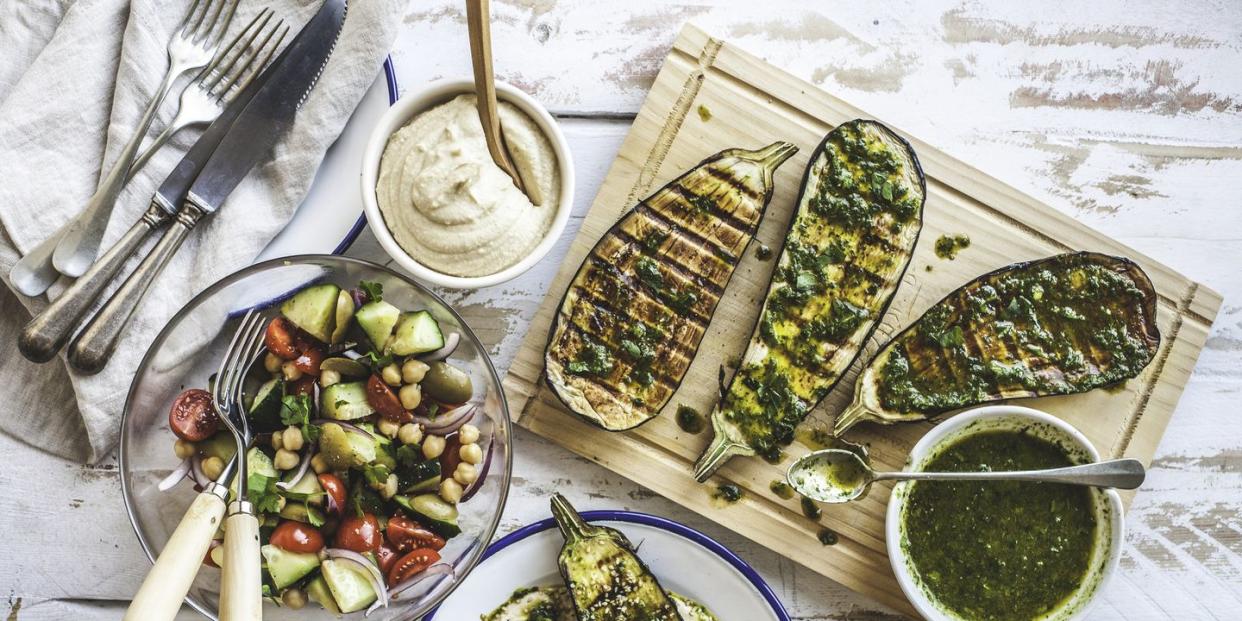Following a Vegan, Vegetarian, or Pescatarian Diet May Put You at Higher Risk for Bone Fractures

A recent study published in BMC Medicine found that people who eat a vegan, vegetarian, or pescatarian diet may put you at higher risk of a bone fracture.
When it came to risk of hip fractures, fish eaters had a 26-percent higher risk, vegetarians had a 25-percent higher risk, and vegans had 2.3 times higher risk, compared to omnivores.
Going meatless isn’t necessarily the culprit of this increased risk, though—it’s a deficiency of calcium and protein, which are important for bone health, no matter the source.
As athletes, it’s important to get enough nutrients, such as protein and calcium, in your diet to keep your bones strong and help reduce your risk of fractures. But could your diet be putting your bone health at risk?
A study recently published in BMC Medicine found that people who ate vegan, vegetarian, or pescatarian diets were at higher risk for bone fractures, particularly hip fractures. But it’s important to note that not eating meat isn’t necessarily the issue at hand—it’s a lack of calcium and protein in diets across the board and a lower BMI that likely contribute to a person’s risk.
A team of researchers analyzed data collected for the EPIC-Oxford study, with people first reporting their dietary habits during initial recruitment between 1993 and 2001. Then, the researchers followed the participants over time to see how their dietary habits affected fracture risk, with the followup happening around 2010.
Results found that vegans, people who exclude all animal products from their diet, had higher risks of total hip, leg, and vertebral fractures than omnivores (labeled as meat-eaters in the study), while fish eaters and vegetarians also had higher risks of hip fractures, Tammy Tong, Ph.D., nutritional epidemiologist in the Nuffield Department of Population Health at the University of Oxford, told Runner’s World.
Fish eaters were found to have a 26 percent higher risk of hip fractures, vegetarians a 25 percent higher risk, and vegans a 2.3 times higher risk, compared to omnivores.
Join Bicycling today for more health and fitness news.
This equates to three more cases of hip fractures per 1,000 people over a 10-year period in fish eaters and vegetarians compared to omnivores, and 15 more cases of hip fractures per 1,000 people over 10 years, Tong said.
However, the study did not look at associations of meat in a person's diet with fracture risks, so the results couldn’t necessarily attribute fracture risk to lack of meat in one’s diet. Instead, the fish eaters, vegetarians, and vegans in the study had lower average BMI, and lower intakes of calcium and protein than the omnivores.
“Rather, the differences in fracture risks observed here were likely due to a combination of dietary and non-dietary factors associated with people of different habitual dietary groups,” Tong said.
Previous studies have shown that low BMI is associated with a higher risk of hip fractures, and low intakes of calcium and protein have both been linked to poorer bone health, Tong said. Calcium is an essential component of bone and vital for preventing brittle bone disease (osteoporosis). Protein may also be important for bone health because it increases intestinal calcium absorption and stimulates the production of insulin-like growth factor, which could promote bone growth and development.
Several mechanisms have been proposed to explain the apparent link between low BMI and increased hip fracture risk. These include high BMI scores being associated with greater cushioning against impact force during a fall; enhanced production of oestrogen (which maintains bone density); or stronger bones from increased weight-bearing, Tong said. The study findings, however, indicate that more research on bone health in vegans is needed.
Bottom line: Being underweight, as well as having inadequate intakes of calcium and protein and all risk factors for fractures, explained Tong. So, if you don’t eat meat (or even if you do), you should ensure that your diet contains adequate levels of calcium and protein, and that you also maintain a healthy BMI (neither under nor overweight) to lower your fracture risk.
You Might Also Like
